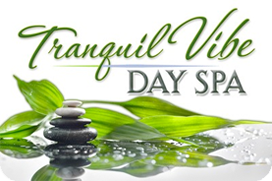Stress Management
UnHealthy Stress, the #1 killer, is constantly striving to raise your blood pressure, cause headaches and reduce your ability to fight off the flu. More importantly though, it is trying to damage your cardiovascular system and overwork your heart. Many things in our lives create this stress, what I like to call our “personal whirlwind”. Everyday we come across challenges at home, at work or just out in the world that push at our stress thresholds. Sometimes these challenges punch through our stress management system and make us feel like a real punching bag. Battered and bruised from one too many stresses can place our system into a “fight or flight” mode, raising our heart and breathing rate and cause our blood vessels to narrow. If left unchecked and this becomes the normal for your daily life then high blood pressure, anxiety or hypertension may kick in, leading to even bigger issues such as heart attacks or strokes and possibly even death.
~Ok, now take a breath, close your eyes and envision gentle waves rolling into a beach, the gentle swish of the waves caresses your ears as the smell of the ocean air awakens your senses and takes you away from everything. The warmth of the sun awakening your skin making you feel alive and comforted all at once. As you summon this relaxing oasis to your mind, you feel your heart slow, your headache vanish, your face relax and you start to feel good again.~
But, what if you are so stressed that you can’t seem to break past that wall? What if you do not have any form of stress management that helps you cope with your “personal whirlwind”? Then you need to stop and create one. Whether it be taking a classes of Tai Chi, exercising, journaling, practicing meditation or getting massages, find one that works for you and stick to it. Make it as much a part of your life as your “personal whirlwind”. Make stress management a top priority and do it now. Stress won’t wait for you, high blood pressure won’t wait for you and a heart attack won’t wait for you. Make stress management a part of your life for the rest of your life and be as faithful to it as your “personal whirlwind” is to you! Our particular focus is massage in its many forms and our recommendation is to manage your stress on a regular basis, whether it be every week or every other week or once a month for a cumulative effect that stays with you. As always though, don’t take my word for it, see what the experts have to say about it.
How Massage Can Benefit Your Heart
By Alex A. Kecskes
Regardless of age, massage therapy performed by a skilled and qualified therapist can reduce stress, cause relaxation and enhance feelings of well being. A good massage can stimulate the nerve endings in skin, release endorphins (the feel good hormones) and inhibit the stress hormones cortisol and adrenaline. Blood will circulate more efficiently, blood pressure will drop and heart rates will slow down.
A regular massage regimen can reduce the risks associated with stress, such as cardiac arrhythmias (the heart pumps less effectively, so less blood reaches the brain and other vital organs). A number of long-term studies have shown that a consistent massage program can decrease diastolic and systolic blood pressure. And maintaining a healthy blood pressure can contribute to lowering the odds of one having a heart attack. Massage therapy releases contracted muscles and pushes venous blood towards the heart, easing the strain on the heart. In this way, massage offers a drug-free, non-invasive and humanistic approach for allowing the body to naturally heal itself.
Some suggest that massage therapy may move a patient’s nervous system from the sympathetic toward the parasympathetic. The sympathetic nervous system helps mobilize the body for action (the fight-or-flight response), which ups the heart and breathing rate and causes blood vessels to narrow. On the other hand, the parasympathetic nervous system creates a resting response characterized by a reduced heart and breathing rate and dilated blood vessels. An increasing number of research studies reveal that massage reduces heart rate, lowers blood pressure and increases blood circulation. A pilot study conducted at Cedars-Sinai Medical Center in Los Angeles showed that in-patient massage treatments performed after heart bypass surgery reduced pain and muscle spasms.
Massage therapy is usually administered by a therapist using fingers and hands to manipulate the soft tissues of the body–muscles, skin and tendons. When administered by a trained professional, massage therapy is generally safe and has no adverse side effects. Since massage improves the circulation, it facilitates the flow of essential nutrients and oxygen to your body. The gliding action of the massage therapist’s hands over your skin (a technique called effleurage) can have a calming effect on nerves, which medical studies show can help reduce stress.
For those who do not get enough physical exercise, a monthly massage is highly recommended. Keep in mind that the effects of regular massage are cumulative. If the goal is one of health maintenance, a massage every week or two can help one feel better and reduce tension and stress levels.
Before attempting massage therapy, first consult a primary care physician. If the doctor advises that massage may help, find a licensed massage therapist who is nationally certified through the National Certification Board for Therapeutic Massage & Bodywork (www.ncbtmb.org) or the American Massage Therapy Association (www.amtamassage.org). Note: Medicare and most private insurance do not cover massage. – See more at: http://www.pacificcollege.edu/acupuncture-massage-news/articles/774-how-massage-can-benefit-your-heart.html#sthash.jEL25SdQ.dpuf



